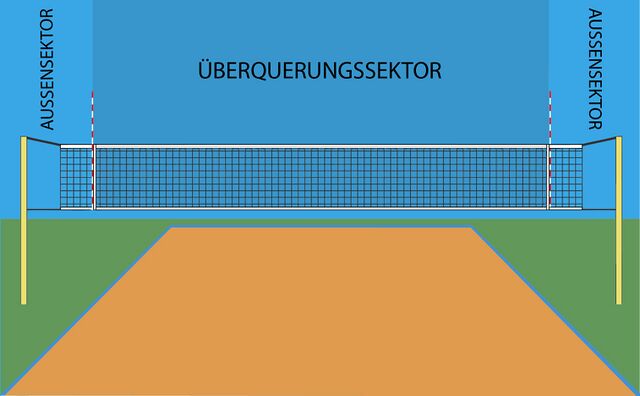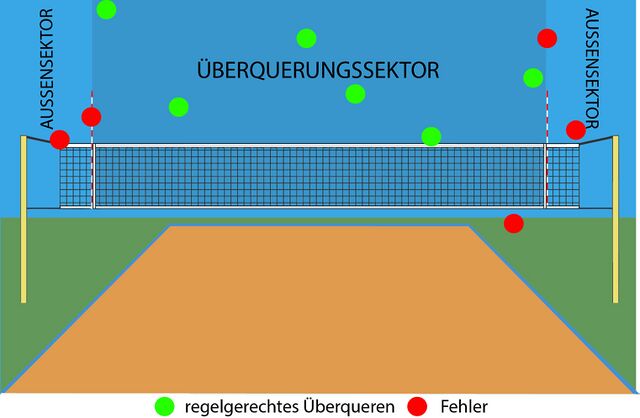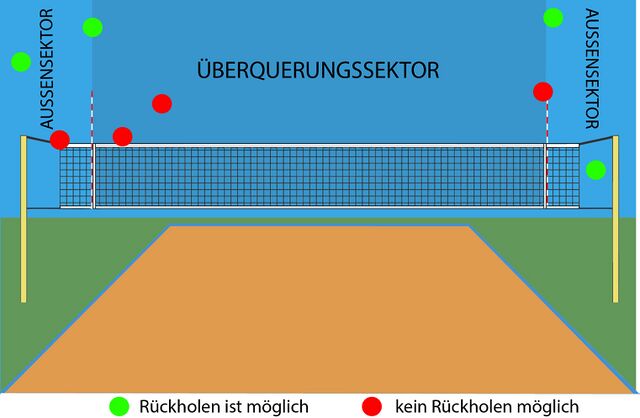6.2 Crossing Space
| [unchecked revision] | [unchecked revision] |
imported>Gesc No edit summary |
imported>Gesc No edit summary |
||
| Line 27: | Line 27: | ||
<br /> | <br /> | ||
<hr /> | <hr /> | ||
<loop_media type="video" title="Playing the ball back" description="Playing the ball back | <loop_media type="video" title="Playing the ball back" description="Playing the ball back legally." render="false"> | ||
{{#ev:youtubehd|JB3tL5yNr6w|640|center|}} | {{#ev:youtubehd|JB3tL5yNr6w|640|center|}} | ||
</loop_media><br /> | </loop_media><br /> | ||
Revision as of 08:03, 27 April 2018
Sectors
The crossing space is limited by the top net of the band, the upper 80 centimeters of the antennae and their hypothetical extensions upwards. Outside of the crossing space is the external space.
Balls through the crossing space
To legally cross the plain of net, the ball has to go through the crossing space completely. To ball may touch the top band of the net while doing so.
Balls through the external space
Balls crossing the plain of the net outside of the crossing space may be played back, as long as the maximum of three team hits is not exceeded. The ball has to be played back through the same external space as it crossed the plain of the net in the first place.
Balls that cross the plain of net partially or completely outside of the crossing space may be played back by the same team. Balls touching an external object (e.g. post, ropes) or an antenna itself may not be played back and have to be call "out" at the moment of the contact.
Ballshave not crossed the plain of the net completely. crossing the plain of the net below the net may be played back as long as they
Texts and pictures are published under:
https://i.creativecommons.org/l/by-nc-sa/4.0/88x31.png
Videos are published under:
https://licensebuttons.net/l/by-nc-nd/3.0/88x31.png


